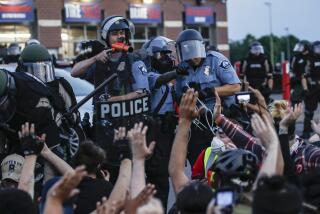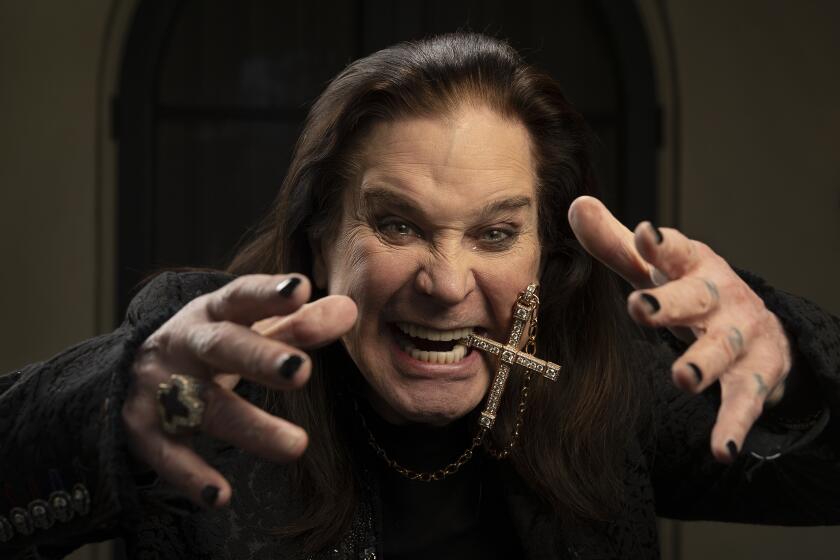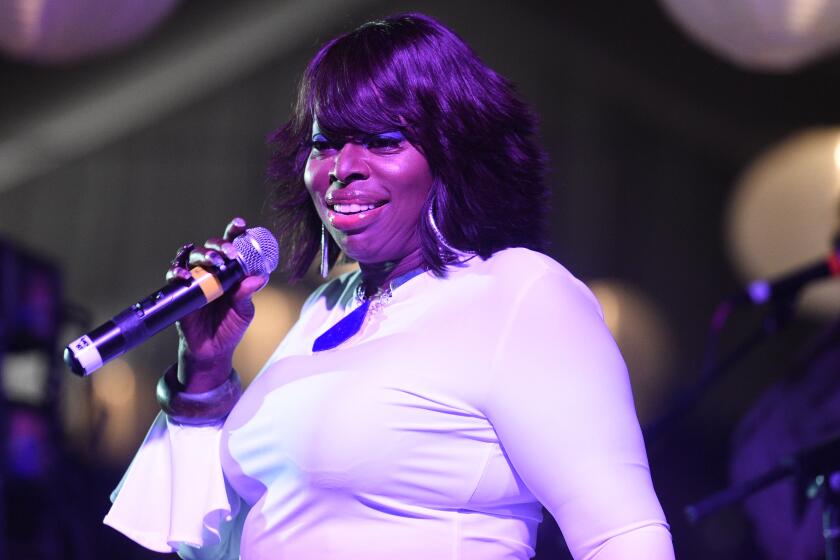From the Archives: What of those 511 arrested at the Pink Floyd concert in 1975?
- Share via
In 1975, there were 511 arrests made at a concert featuring Pink Floyd at the Los Angeles Sports Arena. As the venue is prepped for demolition, here’s a look at the exhaustive follow-up to what happened to those arrested.
It was a year ago this weekend that Los Angeles police arrested 511 young persons -- primarily on marijuana-related charges -- in a controversial crackdown at a Pink Floyd rock concert in the Sports Arena.
Angry Sports Arena manager Jim Hardy charged Police Chief Edward M. Davis with harassment and over-policing. Davis responded by declaring Hardy was a “crybaby.”
As the controversy flared, it embroiled the Police Commission, Mayor Tom Bradley and City Atty. Burt Pines. Then it died down and eventually was forgotten as a new liberal marijuana possession law was adopted.
But what happened to those 511 young persons who were arrested over the five-day period of the rock concert, April 23-27, 1975?
On the basis of incomplete information which the Times has been able to gather over the last six months, it appears that more than half of those arrested did not have to face charges in court at all, and of those who did, most ended up with fines averaging about $150, and no jail sentence.
A more complete picture of the outcome is not likely to emerge because the city’s information-gathering capability and coordination of such matters is not sophisticated enough to provide it.
The Police Department was able to supply some basic information in rather short order:
- Of the 511 arrested, 181 were juveniles. Juvenile court petitions were requested on only 19. The remaining 162 were “counseled and released” by police without further action. This is standard policy for juveniles who have no prior arrest record, police said.
- Names of the 330 adults arrested, together with the police notation of charges filed or rejected, were supplied for checking with the appropriate prosecuting agencies as to disposition.
- Because juvenile records are confidential, the names of those for whom filing of petitions was requested could not be supplied. However, the names were listed for the Probation Department so that a statistical report on dispositions could be made available.
Then began the arduous task of trying to ascertain the disposition of each case.
First the police list indicated that felony complaints were filed against seven persons, which proved to be erroneous. Furnished with the names of those seven, the district attorney’s office reported that three were charged with misdemeanors, in three other instances complaints were rejected and there was no record for the seventh.
Thus apparently no felony charges were filed.
The Probation Department response was even less illuminating. Of the 19 cases supposedly referred, records could be found for only nine. Eight involved alleged possession of marijuana and one intoxication.
Petitions alleging marijuana possession were filed in court on only three of the juveniles, and two of those were dismissed. In the other case the juvenile was fined $50 and placed on probation. All the other juveniles were either handled informally or referred to other counties where they were already on probation.
It was in the city attorney’s office, which handled the bulk of the cases, where the biggest stumbling block was encountered in the attempt to learn dispositions.
Because manpower was not available to be assigned to the project, Mike Wilkinson, press secretary to Pines, volunteered to tackle it on his own time. Over nearly six months, Wilkinson said he spent more than 25 hours on it and was able to check the records of 116 cases filed.
The police department had indicated that the city attorney’s office rejected 72 misdemanor complaints and Wilkinson said his search turned up nothing to dispute that.
According to police figures, three of those arrested were merely issued citations and four were booked on traffic warrants. This would leave 244 charged with misdemeanor compaints, and Wilkinson said that appeared to be about right.
Because he had been able to check only about half the cases, Wilkinson could provide only generalizations. He said however, that a preliminary report prepared last May 22 by Dep. City Atty. Cary Agajanian appeared to be about right insofar as percentages are concerned.
This would indicate that about 30% pf the cases submitted by police to the city attorney’s office were rejected for a variety of reasons. Of the remaining 70% in which complaints were filed, slightly more than two-thirds were for marijuana possession.
Other charges included ticket scalping, resisting an officer, liquor violations, being in a place where narcotics are used, battery, lewd conduct, carrying a concealed weapon and possession of other drugs.
After charges were filed in court, nearly one-fourth were dismissed on the court’s own motion for various reasons. Six of the cases actually went to trial; one was dismissed and not guilty verdicts were rendered in the other five.
In the remaining cases, pleas of guilty or no contest were entered, in most instances after charges had been reduced by plea bargaining.
The most prevalent penalty was a fine of $40 or $50 or two days in jail, and althought the city attorney’s records did not show it, Wilkinson said he believed the fines invariably were paid.
In instances involving more serious charges, the penalty ranged up to $100 or five days. The most severe was a fine of $120 or six days in jail -- but the defendant was credited with $20 or one day already served.
Seventy-five officers were deployed during each of the Pink Floyd performances, according to police. Of the arrests made, 209 were inside the Sports Arena and 302 were outside.
In a report requested shortly afterward by the Police Commission, Davis said the policing required 4,434 manhours, including 266 hours of overtime, at a total cost to the city of $35,523.21.
More to Read
The biggest entertainment stories
Get our big stories about Hollywood, film, television, music, arts, culture and more right in your inbox as soon as they publish.
You may occasionally receive promotional content from the Los Angeles Times.









